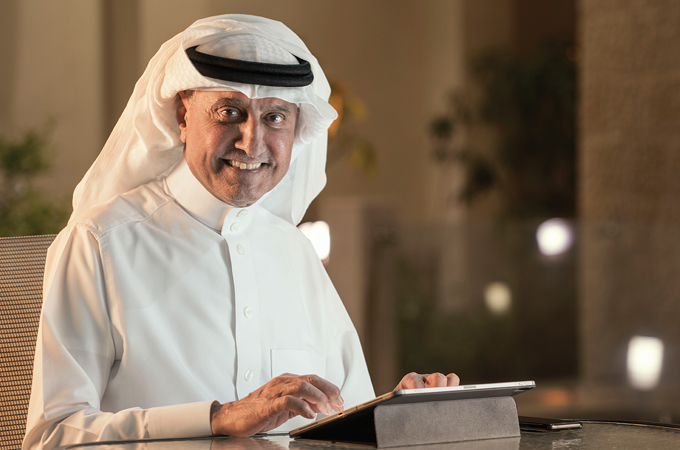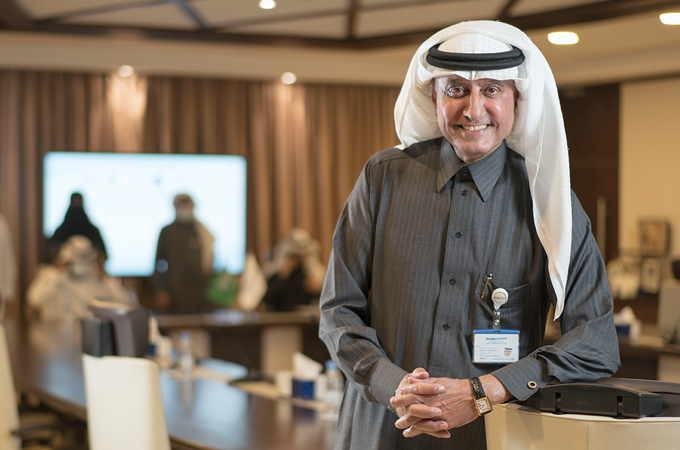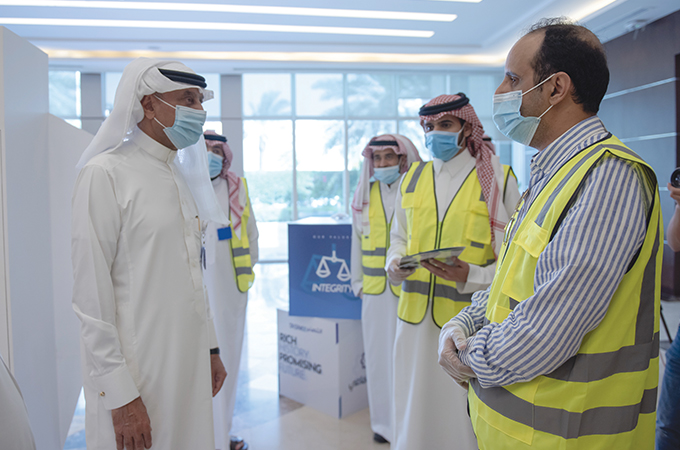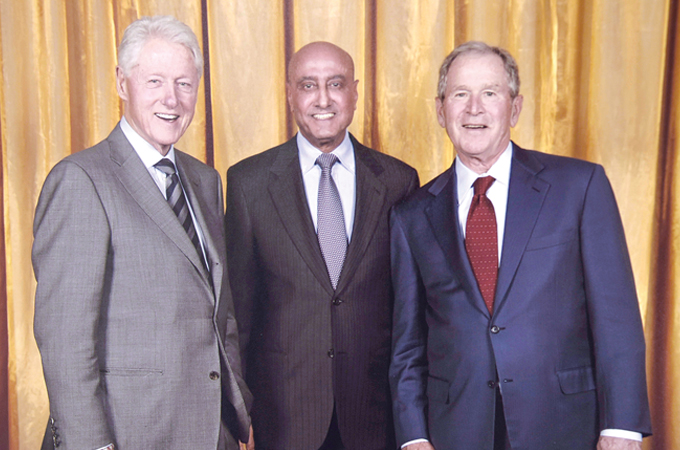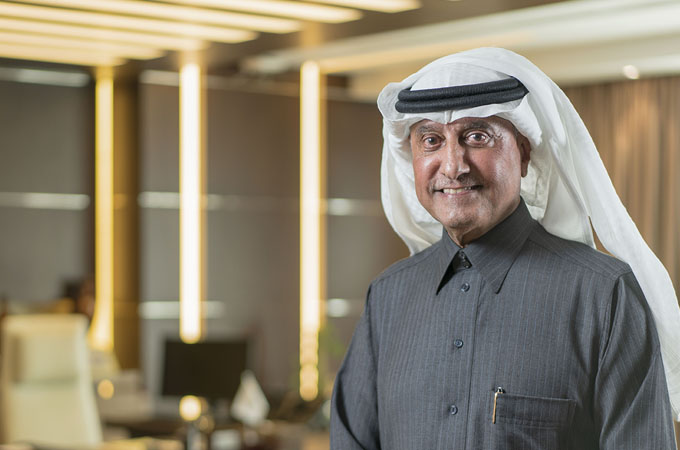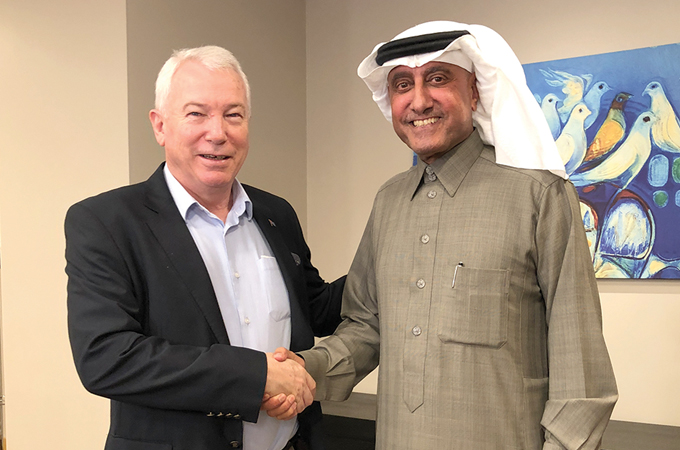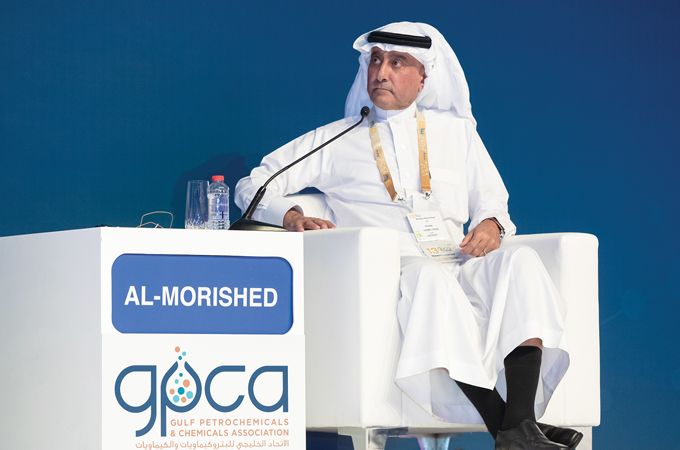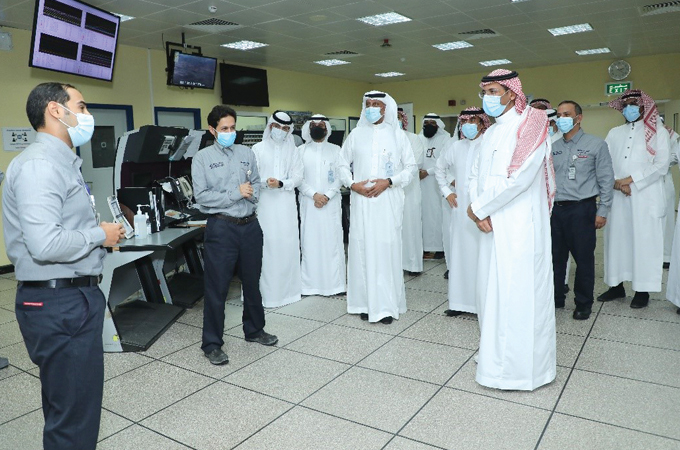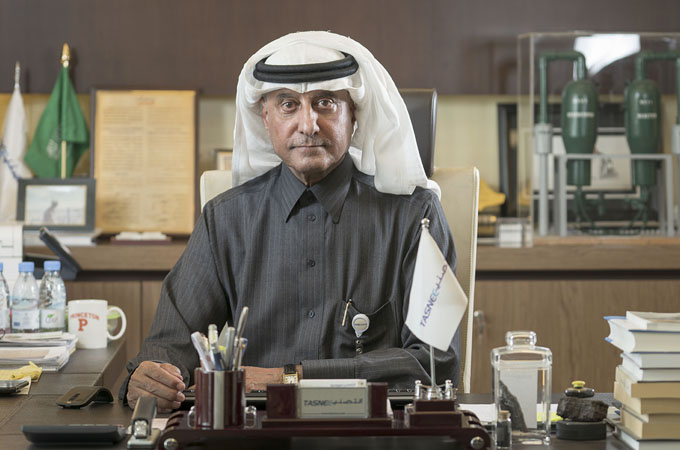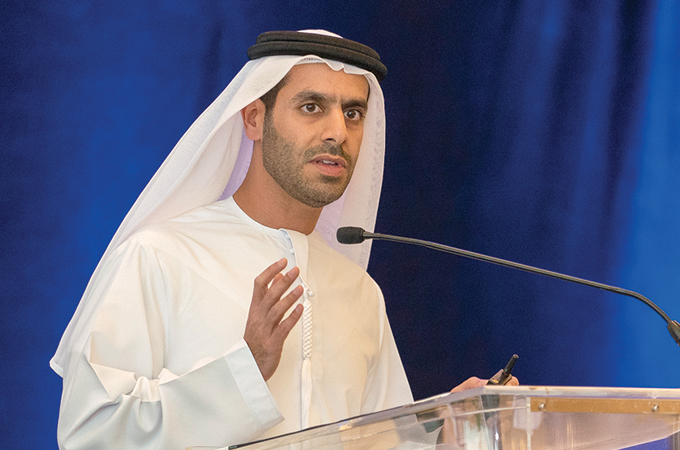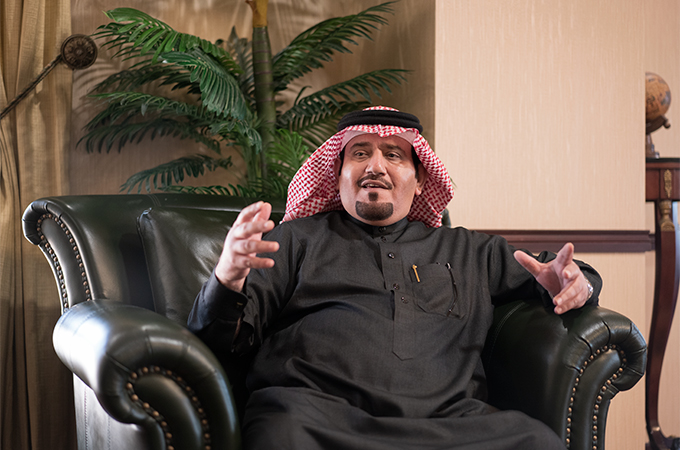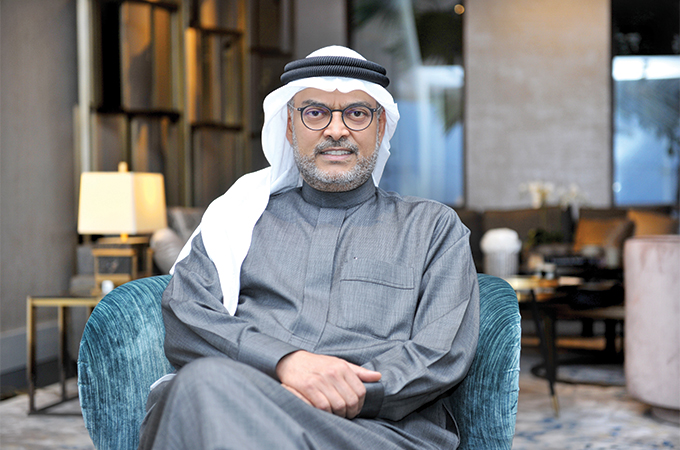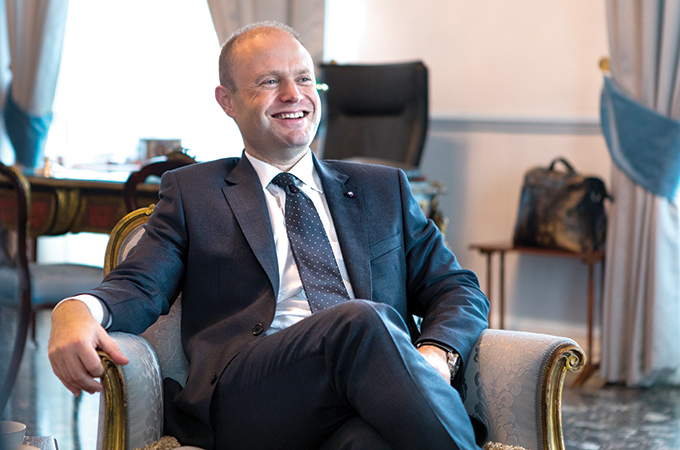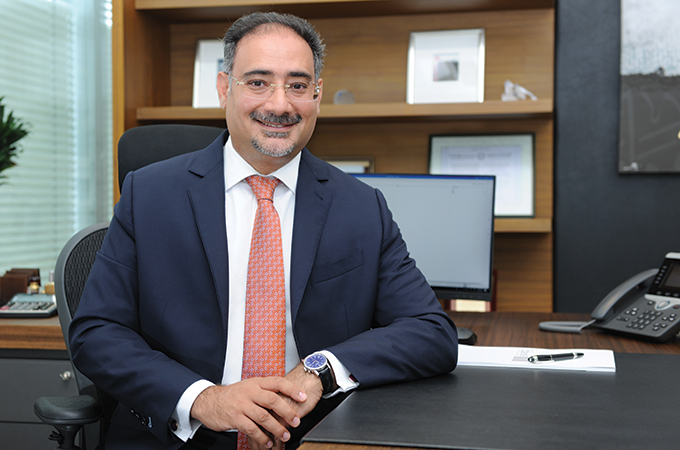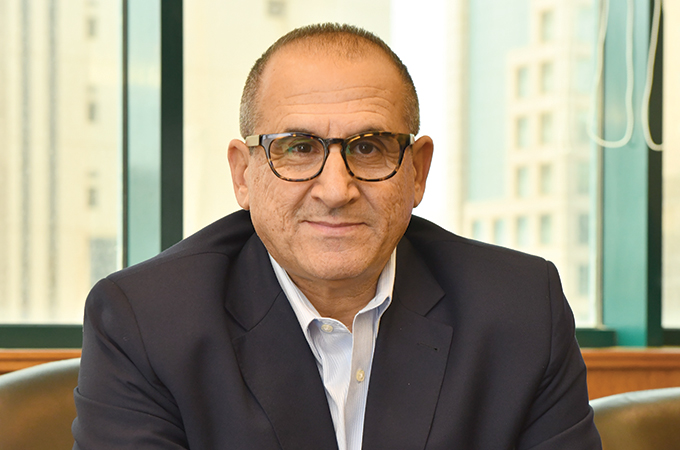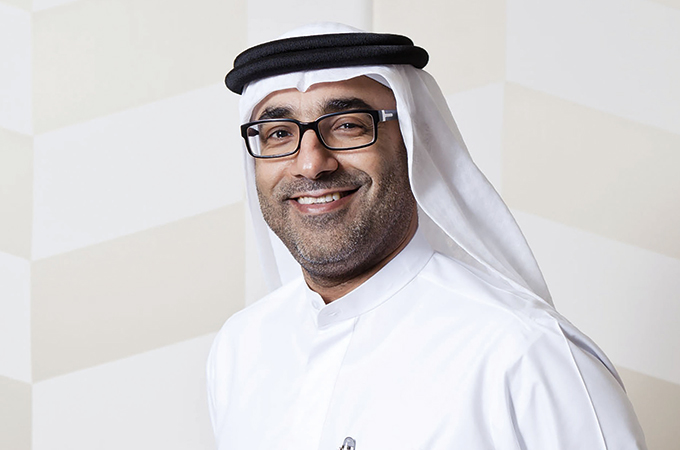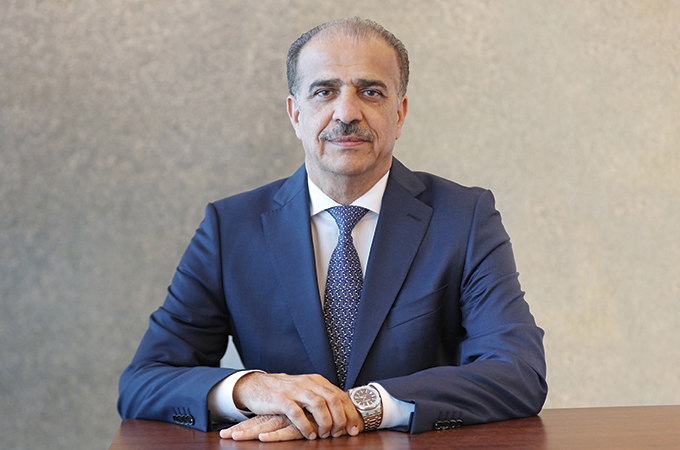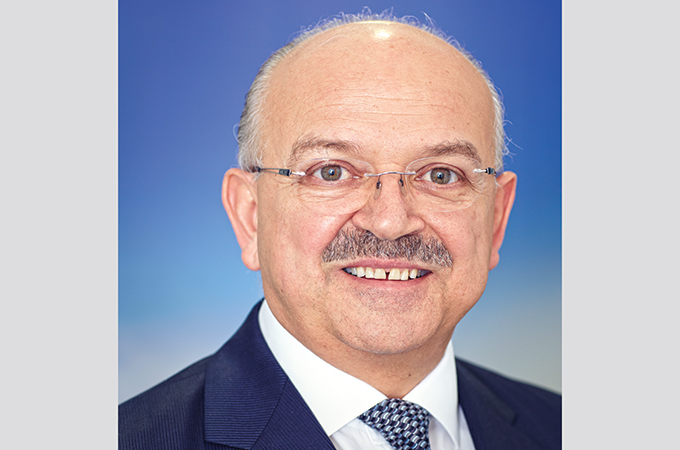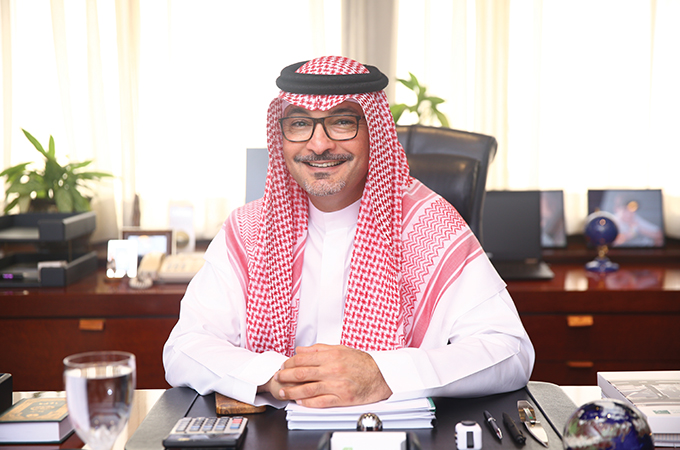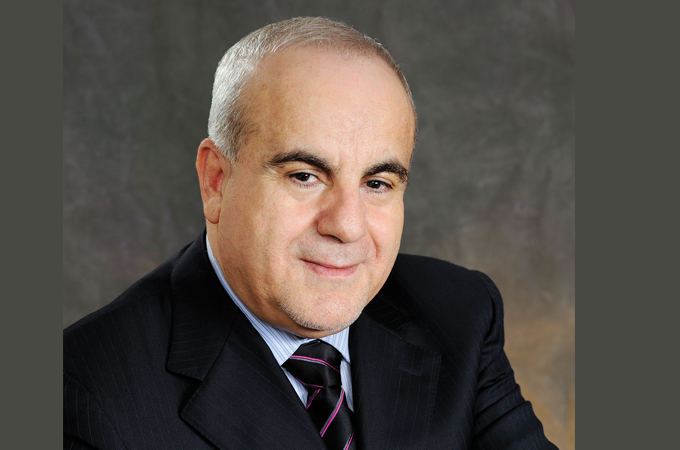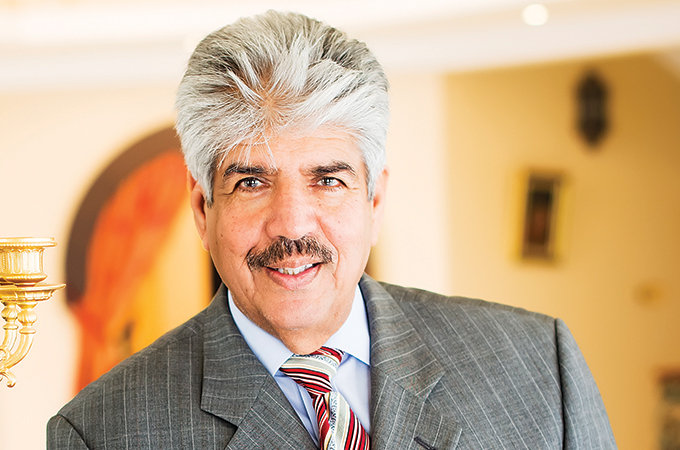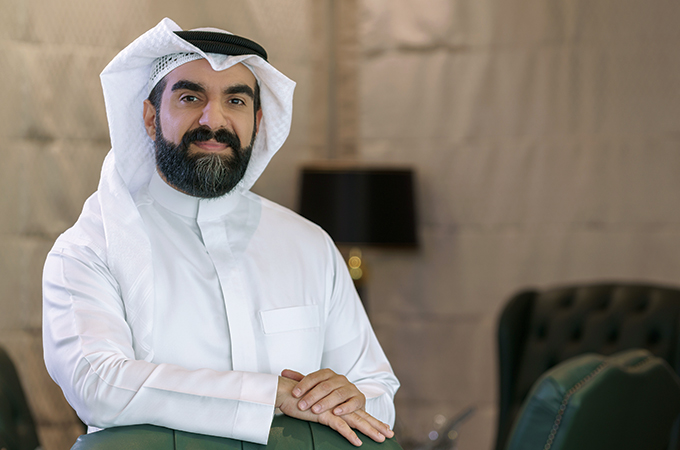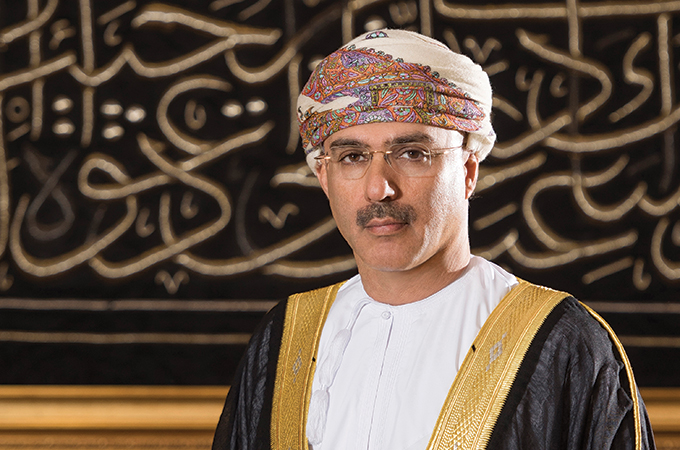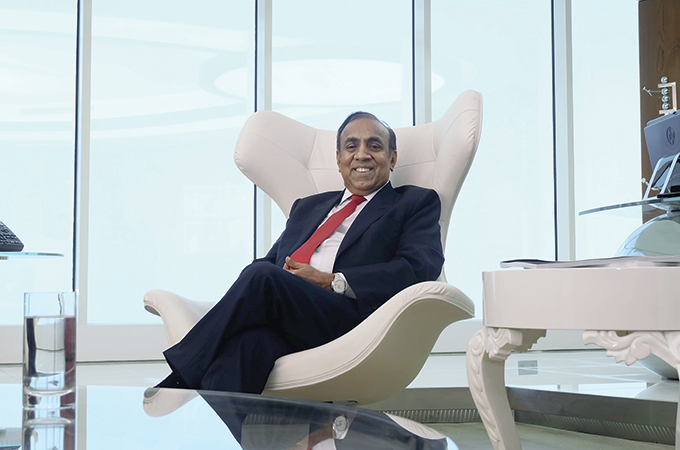Spring / Summer 2021
Mutlaq bin Hamad Al-Morished, taking giant steps out of his desert village driven by the power of education and knowledge, today steers one of the largest corporates in Saudi Arabia. The CEO of Tasnee is a shining model for the aspiring younger generation of leaders
Etched in the sands of time, the story of Mutlaq bin Hamad Al-Morished would sound like a tale from the adventures of a distant world. But here in the Arabian Gulf, he is today steering Tasnee, an industrial major contributing to the diversification of Saudi Arabia’s economy. The Chief Executive Officer of Tasnee is a good example of the adage “success comes to those who dare and act”.
In a career spanning nearly four decades in deep science and big business, Al-Morished has waded many waters and weathered umpteen challenges. But one thing has remained constant with him – keeping his windows and doors open to acquire new knowledge, fresh ideas, he says in an exclusive interview with Arabian Knight’s William (Bill) Grieve.
In fact, in his previous job as CEO at steel-maker Hadeed, one of the first things he did was to pull down all doors, literally. “When I got to Hadeed, the doors of the executive cabins were all closed, and I felt like I was in a prison – long hallways and closed doors. I told everybody that I wanted all doors open and they didn’t listen, so I had the maintenance remove all the doors. The message was clear. When the doors were placed back, they stayed open. An open-door policy conveys the message that anyone can come in and we are open to new ideas. Closed doors just shut people out,” he continues.
Back to the early days, the young Mutlaq had to take giant steps to achieve what he did. Born in a desert tribal community near Anak in the Eastern Province of Saudi Arabia, Mutlaq never really saw his father, having lost him when he was just a week old. He was looked after by his mother and uncle.
“I was a typical Bedouin kid with no idea of what the future might hold and what the road to the future is. My main ambition then was to be home in time for dinner every day,” he reminisces about the childly innocence.
However, he got the opportunity to go to school in Anak, where he finished his primary and intermediate studies, the first in the community to do so. Mutlaq had a flair for numbers and a keen inquisitiveness that drew him to Maths and Science and opened up the path that took him places. “I realised at an early age that I had a thirst for knowledge and could focus, concentrate and achieve things that possibly other children around me at that time couldn’t,” he elaborates.
“As a young Bedouin boy, I quickly realised that education was more powerful than anything else in the world, so I made education my mission. I tried to do well at every course I took and with everything I had to do, I constantly tried to not just succeed but to excel.”
Getting an education was not easy at that time and it was a huge challenge to cross cultural and financial barriers. “I was the first person in my family to learn to read and write. The biggest challenge was to get educated in the best possible way and in the subjects that I could perform well. Finding financial resources to study was another huge problem, especially for people coming out of the desert at that time.”
With no high school in Anak at that time, he went to Qatif for high school studies and graduated from the scientific section with an excellent grade in 1976, which qualified him to receive a government scholarship for university studies in the United States of America. A four-month English language programme put him in good stead to cross the language barrier too.
Then the big leap happened for Mutlaq: he joined the University of Denver in Colorado for the Bachelor’s programme majoring in Maths and Nuclear Physics. He fondly remembers Professor Johnson who encouraged him and guided him all along the way at the university.
Following the Bachelor’s degree, Mutlaq got admission into the Ivy League Princeton University for a Master’s in Nuclear Engineering with specialisation in Fusion Reactor Design (they were called Tokamak reactors, then). Princeton is the heart of nuclear engineering (Einstein taught here) and where the atom bomb was developed.
Taking us through his life’s journey following the Master’s degree, Al-Morished says: “I worked first in nuclear research at the university for a few years, then got bored and moved to Shell Oil in Houston and for the company for a number of years in the refineries, as a refinery engineer and as a senior engineer in the polymer plants.”
Now, Shell, realising his potential, sponsored him for an MBA at the prestigious Stanford University, where he secured admission against tough competition.
He continues that education, education and education was his mantra. “I always believed that education was the only thing that nobody could take away from you,” he stresses. He also attributes his inner strength to his Bedouin background of hardship in the desert that taught him to be patient and hard-working.
“Even in the US, the government scholarship was sufficient for you to survive and for anything extra, you had to work. During the day, I worked as TA (teaching assistant) and at night, I did dishes in the cafeteria. This really helped later when I got married,” he says with a chuckle.
After almost two decades in the US, the calling of the homeland came. “When my uncle, who had taken care of me as a child and who headed our clan in the village, died, my mother asked me to return to Saudi Arabia. I was the next in line for the clan leadership as the oldest son and had to return.”
However, he soon realised the clan was not his thing and he happily handed over the reins to his cousin and moved to the Saudi corporate world, first working with Sadaf, a Shell and Sabic joint venture.
Despite having reputed degrees and the vast experience, it wasn’t easy for him to dig his feet in the now alien environment. “Saudi Arabia was going through a very challenging period when I returned. Oil prices were high, demand was high and to meet the demand you need to think fast, act fast and grow fast,” he recollects.
“The big challenge coming back from the US was that the work culture here was a bit lax unlike the ‘push-push’ culture of the US. I had come from a meritocracy to a situation where, unfortunately, who you know and not what you know mattered. But luckily for me, I was working for a JV where one partner was my ex-employer Shell and this made a difference.”
Al-Morished rose quickly through the ranks, holding roles such as Chief Engineer; Head of Engineering Department; Vice President, Engineering & Operations; and finally, the CEO of the company. “The biggest challenge, even as the CEO, was moving things to a meritocracy-based system in the company,” he avers.
In the corporate world, success creates a buzz and then leads you to a new opportunity, which of course, is another challenge. And soon, Al-Morished’s name did the rounds in the higher echelons of the industry.
“After I had completed two years as President of Sadaf, the then Sabic CEO Mohamed Al-Mady asked me if I would take over Hadeed and I moved to the company with zero knowledge about the steel industry. Just before joining, I studied about steel manufacturing and Hadeed’s position and recognised that the company would need restructuring.
“I told the management team that I was there to improve the bottom line not to make steel and that was their job. First, I convinced the management of the need for change, and once I got their buy-in, things moved in the right direction. I cut costs and increased revenues, applying the standard management theories,” he explains.
Now that Al-Morished had become a turnaround expert, he was handpicked to take over a troubled National Industrialization Company (Tasnee), one of the largest industrial and petrochemical companies in Saudi Arabia and one of the largest investors in titanium value chain locally and globally.
The strategies employed by him to take the company out of its troubles is often described as agile and a case study in turnaround.
“The biggest challenge I faced in Tasnee was turning the company around. Big companies are like aircraft carriers (unlike small boats that can be turned around quickly) and so you need a lot of time to change course. All need to work together because change cannot be brought about by one person at the top of the pyramid without engaging others,” he elaborates.
Tasnee was then experiencing difficulties and needed restructuring. The first thing was to cut costs and reschedule loans and a massive layoff was initiated, cutting staff strength from 9,000+ to less than 6,000. And when this wasn’t enough, Tasnee entered into an agreement to merge its titanium business Cristal with Tronox in a cash-and-equity deal. The company received $1.673 billion as well as a 26.5% stake in Tronox.
“It’s a typical MBA business school case – first you look inside, then you look outside, then you move to capital restructuring. Although I was challenged in my approach, it was very clear that sometimes you have to cut off the arm to save the body. Sacrifices were made and we had to make significant cuts which were very painful, but justifiable. Now we are growing again and thriving in unprecedented tough market conditions,” he says with satisfaction.
However, challenges never cease. As the company was moving on the road to recovery, the drone attack on oil installations in Saudi Arabia (in 2019) sent shockwaves across the oil and related industries. This caused some feedstock concerns for Tasnee and similar industries.
“When we first heard about it, we thought the worst. But I must take my hat off to Aramco, they really did a great job. They got their plants back up and running quickly and supplied gas to all of us in Jubail. Though we reduced production for a period, none of us shut down and it was all thanks to the Aramco people and their great response which kept all our plants running,” he adds.
One test to another, actually two, as the twin shocks of oil price fall and the Covid-19 impact start telling on firms.
So how is Al-Morished managing the situation in these troubled times?
The company has a well-established emergency response team and procedures as well as a business continuity plan, he says. “When this happened, we activated our emergency plan and the management team set up an operations centre in Jubail. With Covid-19, we could not travel and were locked into our respective areas. So, we were communicating with staff and media initially through phones and then through online platforms. The biggest fear was that of a lot of employees getting affected by the virus and us not being able to run the plant. However, we managed this well with a change in shift patterns,” he says.
Shipping and logistics were another major area of concern as the chemical industry depended on exports. “The Saudi Ports Authority did a tremendous job and never stopped ships from coming or going. We had a good contingency/emergency plan set for different reasons such as wars, but it came in handy with Covid-19,” he continues.
Speaking on oil prices, he says the decline is simply economics and a pricing issue. “When oil price goes down, different things happen; it increases economic activity globally and therefore demand grows. Oil prices are a double-edged sword, if they go down too much, it’s not good because our competitors become too competitive. If they go up too much, it slows the economies and demand goes down, so not good. The happy medium, in my personal view for the chemical industry in Saudi Arabia, is around $60 to $80 a barrel.”
It’s important to know how a business leader not only leads but empowers others to take decisions and motivates them.
Al-Morished swears by leadership by example at all levels of management and supervision within Tasnee. “As a leader, you must accept mistakes, if you empower people and you don’t accept mistakes it just won’t work. People who work will make mistakes. That’s something I learned in the US as well. Empowerment is trusting your people, giving them the chance to make mistakes and helping them to learn.
“I like to encourage all the people at Tasnee to deliver their best and I try to find ways to support and empower them as do all the management at Tasnee. We try to provide the leadership needed that aligns with the visions for the Kingdom as a whole; we are environmentally conscious; we are a people company that strives to ensure that our people are able to work safely and in ways and environments that ensure they are happy, healthy and productive. We want to ensure our people are treated with value and dignity and given all the opportunity we can as a company for them to grow,” he emphasises.
So, where does he see Tasnee in the next few years?
“I see Tasnee improving its debt situation significantly, reducing what we call net debt-to-EBITA ratio to around or less than three per cent and the company more concentrated on the petrochemical side where the margins are much better. We need to build our chemical footprint internally and externally … it takes time to build a chemical plant, possibly five or six years.
“Tasnee is fast becoming a front-runner company and becoming Primus inter pares (Latin for ‘First among equals’) and is being accepted as a strong resourceful entity that is well managed and on a growth curve not only in Saudi Arabia but the whole region and even further afield. My forecast for Tasnee is that it will surpass our own expectations, consolidate and grow,” he predicts.
Following the Covid-19 outbreak, the world has seen many changes in the way we work and live. Will they last, we ask the CEO who has seen many cycles of economic ups and downs.
“Before the Covid-19, I never thought working from home would work – but it has,” admits Al-Morished. “If you were to ask me before Covid-19 if I would support working from home, I would have been extremely reluctant and have said ‘no chance; people will go home and laze around and it will not work’. But as we have seen, people actually work harder from home; we have not seen productivity go down, it’s on par or better. They respond to emails and join online meetings till late in the evening and it’s almost non-stop. It can be detrimental to the employees’ health, especially with global companies like ours where we have plants and facilities in different time zones,” he warns.
“For the future, if you can get enough people working from home, companies can cut their office footprint significantly and reduced all sorts of costs – rent, water, electricity, cleaning and more.
“Also, going forward, you will see a lot of business travel reduced. There is no justification to send people all over the world for meetings anymore. Of course, we will still need to travel for exhibitions, conferences, trade negotiations, but most other meetings you can do by Zoom or Teams,” he says.
The energy industry is at crossroads with “renewables” being the buzz word. Where does this veteran see the future of the energy industry?
Without mincing words, Al-Morished says fossil fuel is here to stay despite the enormous buzz around other sources of energy.
“I am not against renewable energy sources but at the same time, we have to respect science. There are a certain number of BTUs (British Thermal Units) that come from the sun and it will be the same, today, tomorrow and in a thousand years. The efficiency and the highest physics-based conversion you can get from the sun is around 54%. As long as we don’t have efficient storage for power, which we don’t have today (but I am sure at one point it will come), solar will always have its limits and our day-to-day needs will be met by fossil fuel – natural gas, oil, coal and thermal plant or nuclear energy. These are the true energy producers that, come rain or shine, will provide power to your house. Nobody will accept that we have electricity while the sun shines and no power when the sun goes down.”
He opines that there is a lot of hype, especially in Western countries, on how solar is solving the whole problem. “I am not against it, but feel it’s exaggerated. There is definitely a place for solar and wind, but it’s not going to be the main power source to the grid; it’s still going to be fossil fuel or nuclear because these are dependable year-round sources.”
Saudi Arabia is on the cusp of great changes and the Kingdom aims to become an industrial hub for the region and the world. As a business leader with enormous global experience, what are the key suggestions he will make to achieve this ambition?
Al-Morished goes back to his theme of education. “The most critical thing, in my experience, is we need to provide first-class education, especially in professional areas. We need more people working with their hands, like welders, machinists, mechanics, painters and millwrights. We don’t need people rote learning and studying liberal arts. These have their place, but right now we need practical hands-on talents. We need to move from an education system based on memorising to studying STEM subjects (Science, Technology, Engineering and Maths). No country has ever progressed without focusing on the science part of education.
“We must also accept productivity improvement – we need to be as productive as countries like Germany or America. Productivity is the key to Saudi Arabia competing with the rest of the world,” he says.



